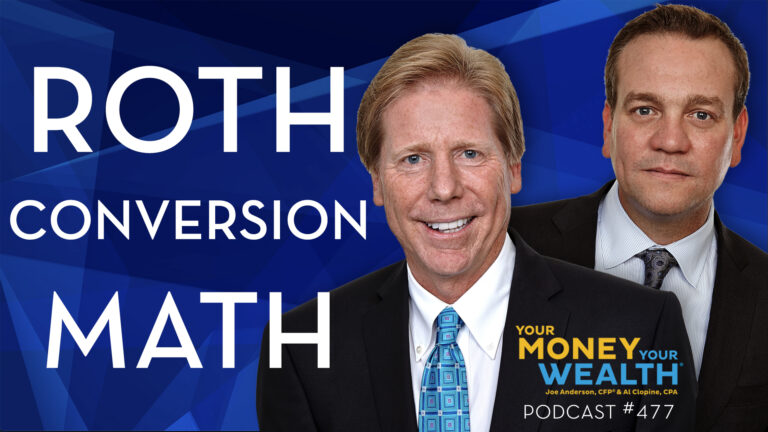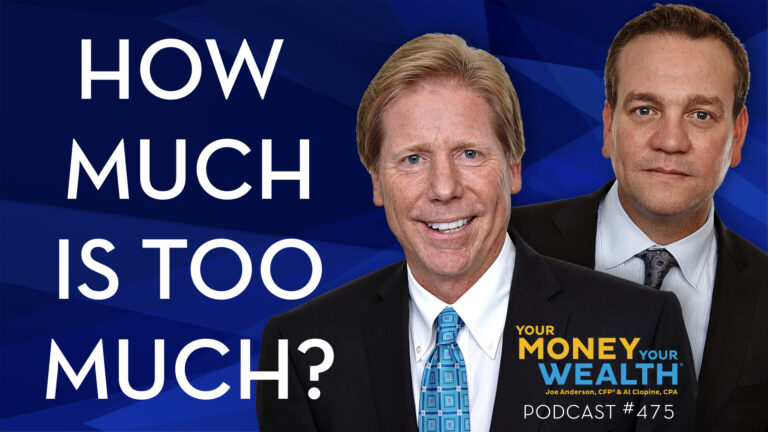The largest asset you’ll have in retirement is likely Social Security. How do you know when to claim and how to claim? How are Social Security benefits taxed and will they be reduced? Your strategy for claiming Social Security benefits doesn’t just affect your income in retirement, but it also impacts your taxes, risk, and even your insurance and estate plan. In this podcast, find out how to avoid risky mistakes with your Social Security and the best claiming strategies so you can take full advantage of this vital retirement asset.
3:26 “When you think about how much money you need to set aside to cover a payment stream that Social Security offers you, you’re talking hundreds of thousands, in many cases millions of dollars in terms of having enough money to create that much benefits”
4:42 “Did you know there is more to Social Security than just a check? Proper Social Security planning could have a big impact on your investments, taxes, risk and even your insurance and estate plan.
6:13 “There are two things you have to look at when you claim your Social Security benefits: how much can I expect to receive and what age do I start collecting my benefits?”
11:34 “In order to qualify for Social Security retirement benefits, an individual is required to work and earn credits; a maximum of four credits can be earned each year—essentially it takes ten years to build up the necessary 40 credits to be fully insured for Social Security retirement benefits”
15:31 “When they first created Social Security, the full retirement age was age 65, that was back in 1935…it’s the 80th anniversary of Social Security benefits”
17:45 “If you were born in 1960 or after, your full retirement age is 67”
22:21 “There’s no one-size-fits-all solution here, so you’ve got to take a look at your current health and expected longevity…you need to be honest with yourself”
22:42 “What other savings do you have? Are you going to continue to work? What kind of taxable income will you have in retirement and what is your current family situation?”
24:50 “There is no earnings limit that exists within the month that an individual reaches his or her full retirement age”
26:07 “You can elect to receive Social Security as young as 62; if you do, you get a reduced benefit. The normal retirement age is 66, although it will be increasing to 67 here in a few years. The latest age you can collect is age 70, and every month you wait to collect, you get a higher benefit for the rest of your life”
28:34 “A greater risk for most people is outliving one’s assets; don’t focus on the breakeven date—worry about the broke date, in other words the date you go broke. The bigger danger here is outliving your money and if you wait on your Social Security, as long as you can afford to wait, then you’re going to have more income for the rest of your life”
31:49 “Social Security benefits can be taxable, and it depends upon your income level”
33:26 “85% of Social Security income is taxable”
38:00 “There’s a lot more you can do if you’re in your 60’s and retired and able to start shifting some of your assets around into the Roth IRA to minimize this huge tax problem”
Listen to the YMYW podcast:

Amazon Music
AntennaPod
Anytime Player
Apple Podcasts
Audible
Castbox
Castro
Curiocaster
Fountain
Goodpods
Google Podcasts
iHeartRadio
Apple iTunes
iVoox
Luminary
Overcast
Player FM
Pocket Casts
Podbean
Podcast Addict
Podcast Index
Podcast Guru
Podcast Republic
Podchaser
Podfriend
PodHero

Podknife
podStation
Podverse
Podvine
Radio Public
Rephonic
Sonnet
Spotify
Subscribe on Android
Subscribe by Email
RSS feed









